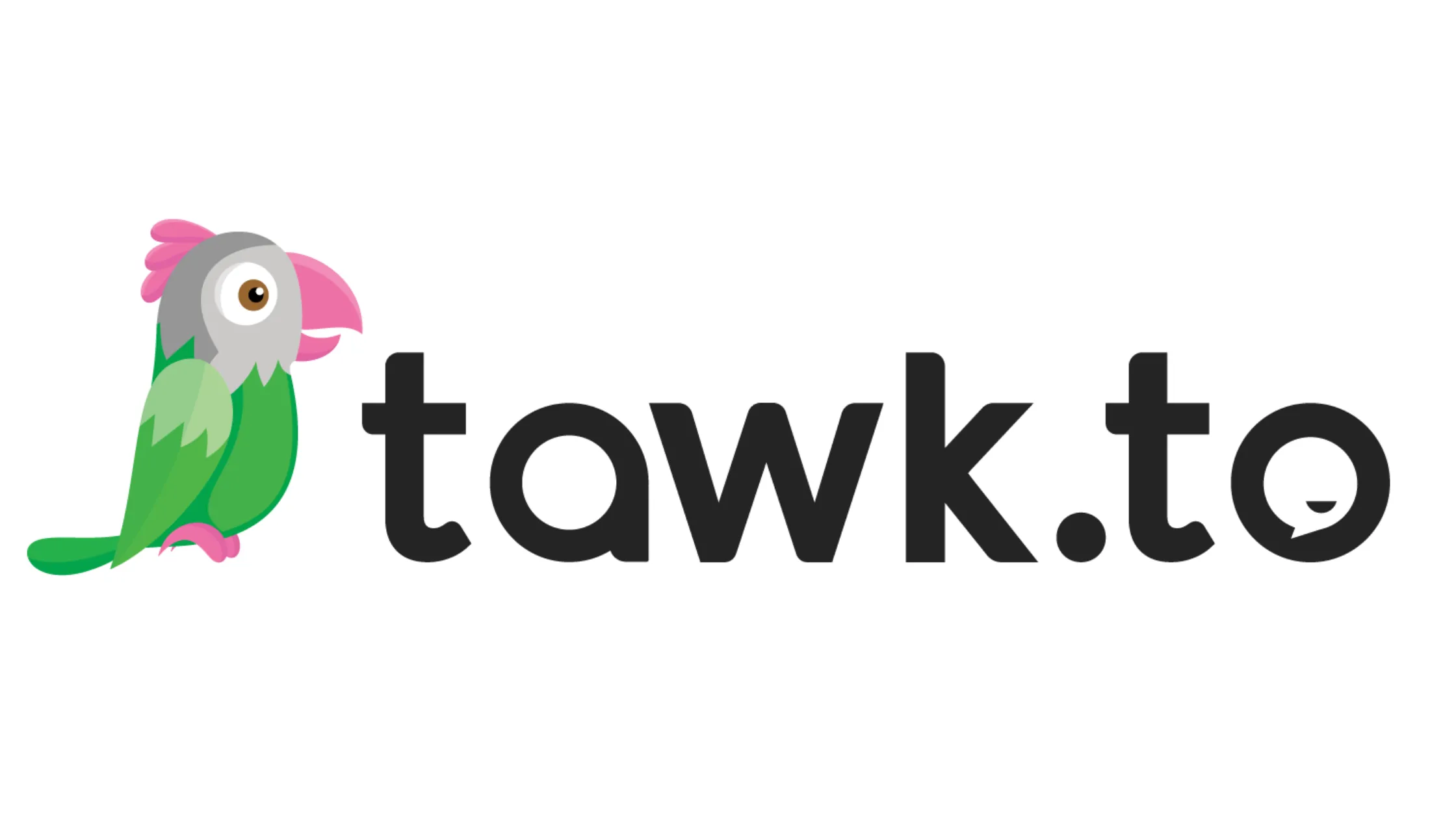
What is an Angel Investor?
Learn how angel investors can provide early-stage funding, strategic guidance, and flexible terms to help startups grow and succeed.
As a startup founder, you're constantly thinking about how to raise capital. Whether you're still experimenting with an MVP or preparing to scale, at some point, you’re likely to ask: "Where am I going to get funding?" Enter angel investors—individuals who invest their personal money in early-stage startups, often in exchange for equity. Unlike venture capitalists (VCs), angel investors are usually more flexible, offering much-needed capital when traditional funding sources may not be accessible.
But what exactly is an angel investor, and how can they help your startup grow?
Who are Angel Investors?
An angel investor is a high-net-worth individual who provides financial backing to early-stage startups. Often, angel investors invest in industries or businesses they are passionate about. They may be former entrepreneurs, business leaders, or simply individuals looking for higher returns than traditional investments offer.
Here’s what sets angel investors apart:
- Personal investment: They invest their own money, unlike VCs who manage pooled funds.
- Flexible terms: Angels may offer more flexible terms compared to institutional investors.
- Early-stage focus: Angels often invest in the very early stages, sometimes before product-market fit is established.
Why Seek Angel Investment for Your Startup?
Now, you might be wondering, “Why should I seek out an angel investor rather than bootstrapping or going to a VC?” Great question. Here’s why angel investors can be a game-changer for your startup:
Access to Early Capital
Most founders face the biggest challenge right at the start—getting enough capital to take an idea from concept to MVP. Angel investors provide that crucial initial funding when your startup might not yet be attractive to larger VCs.
Strategic Guidance
Beyond capital, many angels bring significant industry expertise and networks. For example, if you're working on a healthtech startup and your angel investor has extensive experience in healthcare, they can provide invaluable advice and make introductions that help you navigate complex regulatory environments.
More Flexibility Than VCs
VCs often have strict criteria and processes before making an investment. Angel investors, on the other hand, tend to be more flexible. Since they’re investing their own money, they can be quicker to make decisions and are often open to less formal agreements.
A Long-Term Relationship
Angel investors typically take a more hands-on approach compared to VCs. Since they often have a personal stake in your success, they are motivated to help you grow over the long term. In some cases, angel investors become mentors and close advisors.
How to Attract an Angel Investor
At Horizon Labs, we often work with founders who are in the same position you're in—looking for that first capital injection to get the ball rolling. Here are some strategies we’ve seen work to attract angel investors:
Build a Strong Network
Angel investors aren’t hanging out at your local coffee shop (at least, not usually). They’re often found through referrals, introductions, or events specifically designed to connect founders with investors. Build your network through accelerators, industry events, or platforms like AngelList.
Have a Solid Pitch Deck
If you’re trying to woo angel investors, your pitch deck needs to stand out. Focus on:
- Problem-Solution Fit: Clearly outline the problem you’re solving and how your solution is uniquely positioned to address it.
- Market Opportunity: Show the potential size of your market.
- Traction: Even if you're pre-revenue, showcase user growth, partnerships, or early product feedback.
- Financials: Be transparent about your financial projections, burn rate, and how much capital you need.
At Horizon Labs, we specialize in helping startups refine their pitch decks by aligning product development milestones with investor expectations.
Show Early Product-Market Fit
Investors want to see some level of product-market fit, even if it’s preliminary. This is where building an MVP or prototype comes into play. The faster you can get your product in front of real users, the better your chances of securing an angel investment.
Common Mistakes to Avoid When Working with Angel Investors
While angel investors can be a great source of funding, it’s important to approach the process with care. Here are a few mistakes to avoid:
Giving Away Too Much Equity Too Early
It’s tempting to offer a large equity share to early investors in exchange for capital. However, giving away too much equity too early can hurt your long-term growth prospects. Be strategic about how much equity you offer and consider your future funding needs.
Not Aligning on Expectations
It’s crucial to ensure that you and your angel investor are on the same page regarding expectations. Some investors will want regular updates and input on business decisions, while others might take a more hands-off approach. Clarify these details early on to avoid conflicts later.
Focusing Only on Money
The best angel investors offer more than just money—they provide mentorship, connections, and strategic advice. Don’t just focus on securing a check; consider how an investor can help you grow beyond the capital.
How Horizon Labs Helps Startups Prepare for Angel Investment
At Horizon Labs, we’ve worked with numerous startups—many of which were funded by angel investors. From building MVPs that get investor attention to fine-tuning product development plans, we help you set up for success.
Here’s how we can help you get ready for angel investors:
- Prototyping and MVP Development: We help you build prototypes and MVPs quickly and cost-effectively so you can demonstrate early traction to investors.
- Product Roadmap: We work with you to create a clear product roadmap that aligns with your fundraising goals.
- Strategic Advice: As YC alums, we’ve been through the startup grind. We offer strategic advice on how to approach angel investors, refine your pitch, and close deals.
Types of Angel Investors You Might Encounter
Angel investors aren't a one-size-fits-all group. There are several types of angels you may come across in your fundraising journey. Understanding the differences can help you target the right kind of investor for your startup.
Professional Angels
These individuals have made angel investing a career. They usually have a diversified portfolio of investments in various industries and a keen understanding of startup growth dynamics. Professional angels often invest larger sums and bring significant strategic expertise.
Affiliated Angels
Affiliated angels are individuals who have some personal connection to your business, such as friends, family members, or close colleagues. While they may not always have deep industry knowledge, they tend to invest because they believe in you personally. Affiliated angels are often more forgiving of early mistakes but may offer less strategic value than professional angels.
Angel Syndicates
An angel syndicate is a group of investors who pool their resources to invest in startups. By joining forces, they can invest larger amounts while sharing the risk. Syndicates often operate on platforms like AngelList, allowing founders to raise capital from multiple angels with a single term sheet.
How Much Do Angel Investors Typically Invest?
While the amount varies, most angel investors write checks between $25,000 and $250,000, depending on their level of wealth and risk tolerance. For many startups, this can be the lifeline needed to reach important milestones, like launching an MVP or achieving initial user traction.
It’s worth noting that some angels might invest in multiple rounds, particularly if your startup shows consistent growth. At Horizon Labs, we’ve seen angel investors continue to support startups they've backed during seed and Series A rounds as well.
What Angel Investors Look for in a Startup
Angel investors typically focus on a few key factors before deciding to invest. As a founder, knowing what they care about can significantly improve your chances of securing funding.
A Compelling Vision
At the early stage, angel investors are betting on the founder as much as the idea. They want to know that you have a clear vision for the future and the drive to execute it. Being able to articulate your vision clearly—and how your startup fits into the market—is crucial.
A Strong Team
Angel investors often say they’d rather back a strong team with an average idea than a great idea with a weak team. Show that your co-founders and early employees have the skills, passion, and commitment to take your startup to the next level. Having a capable and well-rounded founding team can make you much more attractive to investors.
Early Traction
While angel investors understand that early-stage startups are inherently risky, they do like to see some signs of traction. This could be a working prototype, initial customer feedback, or even early revenue. Anything that demonstrates there’s demand for your solution can go a long way in convincing an investor to back your startup.
Negotiating Terms with Angel Investors
Once you’ve secured interest from an angel investor, the next step is negotiating the terms of the investment. This process can be a bit tricky for first-time founders, but there are a few key concepts to keep in mind.
Equity vs. Convertible Notes
Most angel investments are structured as either direct equity (ownership in your company) or convertible notes (loans that convert into equity at a later stage). Convertible notes are popular because they delay the need to assign a valuation to your startup, which can be challenging at such an early stage. Instead, the note converts to equity once a larger funding round happens, usually at a discounted rate.
Valuation
Valuation is often the most contentious part of the negotiation. If you set your valuation too high, you may scare off investors, but if it’s too low, you could be giving away too much of your company too early. At Horizon Labs, we advise startups to get a clear sense of market norms for valuations at their stage and industry, and to avoid giving away more than 15-20% of equity in the first round.
Board Seats and Control
Angel investors may ask for a board seat, especially if they are investing a significant amount or plan to be heavily involved in your business. While it’s not uncommon for angels to ask for some level of control, it’s important to ensure that you, as the founder, retain decision-making authority. Always be clear about roles and expectations upfront.
Need Help With Angel Investors?
Whether you’re seeking angel investment or just starting to build your product, Horizon Labs can help you achieve your goals faster and more effectively. Our experience working with top-tier startups, including YC alums, means we know what it takes to get from idea to launch. We’ve helped companies in healthtech, e-commerce, AI, and more build MVPs, secure funding, and grow.
If you're ready to take the next step in building your startup or need help preparing for your next angel investor pitch, contact Horizon Labs today. Email us at info@horizon-labs.co or schedule a call at https://www.horizon-labs.co/contact to see how we can help you build better, faster, and cheaper than the competition.
Frequently Asked Questions (FAQs) about Angel Investors:
Q: How do angel investors differ from venture capitalists (VCs)?
A: Angel investors typically invest their personal money in early-stage startups, while venture capitalists manage pooled funds from various sources. Angels often come in earlier, when the risk is higher, and usually invest smaller amounts than VCs. While VCs focus on larger rounds and expect rapid scaling, angels tend to be more flexible and may not require immediate high growth.
Q: What industries are most attractive to angel investors?
A: Angel investors tend to invest in industries they’re passionate about or familiar with. Technology, healthcare, fintech, and e-commerce are popular sectors, but angels can invest in any field where they see potential for growth. Industries experiencing innovation or disruption also tend to attract more angel interest.
Q: Do angel investors require a certain level of traction before investing?
A: While each angel is different, many prefer to see some early signs of traction before investing. This could include a working MVP, initial user feedback, early customer acquisition, or a growing waitlist. However, some angels are willing to invest in strong teams and ideas, even without significant traction, if they believe in the founder’s vision.
Q: How do angel investors make money?
A: Angel investors make money by acquiring equity in a startup and eventually selling it when the company exits, either through an acquisition or an IPO. If the startup is successful, the value of their equity can increase significantly. However, angel investing is risky, and many startups fail, so angels rely on their portfolio’s few big wins to cover losses.
Q: How much equity do angel investors typically take?
A: Angel investors usually take between 10-25% equity in exchange for their investment. The exact amount depends on the startup’s valuation, the size of the investment, and the terms of the agreement. It’s essential for founders to negotiate carefully to avoid giving away too much equity early on.
Q: Can angel investors invest alongside other funding sources?
A: Yes, angel investors often participate in funding rounds alongside other investors, including venture capitalists, friends and family, or syndicates. Some angels also invest in follow-on rounds, continuing their support as the company grows.
Q: How can founders find angel investors?
A: Founders can connect with angel investors through personal networks, startup accelerators, pitch events, and online platforms like AngelList. Building relationships through networking and seeking introductions from fellow entrepreneurs or advisors is often the best way to secure meetings with angel investors.
Q: What kind of involvement do angel investors typically have in the startup after investing?
A: The level of involvement varies. Some angels are hands-on and want regular updates, serving as mentors or advisors, while others prefer a more passive role, only stepping in for major decisions or when their expertise is needed. It’s important to clarify the expected level of involvement before finalizing the investment.
Q: Can angel investors help with introductions to other investors or customers?
A: Yes, many angel investors have extensive networks and can introduce you to other investors for future funding rounds or potential customers and partners. Leveraging their connections can be one of the biggest advantages of securing an angel investor, beyond the financial support.
Q: Are angel investors regulated by the government?
A: In the U.S., angel investors must be accredited investors as defined by the Securities and Exchange Commission (SEC). This means they need to meet certain financial criteria, such as having a net worth of at least $1 million (excluding their primary residence) or earning an income of over $200,000 annually for the last two years.
Q: How long does it typically take to secure funding from an angel investor?
A: The process of securing funding from an angel investor can vary, but it typically takes anywhere from a few weeks to a few months. Factors such as the investor's decision-making speed, due diligence, and your preparedness (pitch deck, financials, traction) will impact the timeline. Angels often move faster than venture capitalists, but don’t expect an immediate decision.
Q: What documents do I need to present to an angel investor?
A: To attract an angel investor, you’ll typically need a strong pitch deck, a business plan, financial projections, and details about your market opportunity. You may also need to provide due diligence materials such as legal documents, company formation details, and existing contracts with customers or partners.
Q: Can I raise money from multiple angel investors in the same round?
A: Yes, it’s common to raise money from multiple angel investors in a single funding round. This is often done through a process called "syndication," where one lead angel investor helps bring in others. Raising from multiple investors can allow you to secure more capital without giving away excessive equity to a single individual.
Q: What percentage of startups succeed after raising money from angel investors?
A: The success rate for startups after raising angel funding varies, but statistics show that a majority of startups will not succeed in the long run. It’s estimated that about 20-30% of angel-backed startups return a significant profit to investors, with only a few achieving major success. This is why angels often diversify their investments across many startups.
Q: Can angel investors invest in startups outside their country?
A: Yes, many angel investors invest in startups internationally, especially if the industry or product is something they’re passionate about. However, cross-border investments can involve additional legal and regulatory considerations. Investors may require more due diligence to understand the business climate and laws in the startup's country of operation.
Q: What are the tax implications for receiving angel investment?
A: Receiving angel investment may trigger certain tax implications depending on your country. In the U.S., for example, the investment itself is typically not taxed, but the sale of equity (if the startup is successful) can trigger capital gains taxes for the investors. For founders, issuing shares or equity may require careful structuring to avoid unnecessary tax burdens. It’s advisable to consult a tax professional.
Q: Do angel investors charge interest on their investment?
A: Angel investors typically do not charge interest on their investments because they are not providing loans but buying equity in the company. However, if they are using a convertible note structure, there could be interest associated with the note, which would convert into equity at a later stage along with any accumulated interest.
Q: Can a startup offer other forms of compensation, like advisory shares, to angel investors?
A: Yes, some startups offer advisory shares or other forms of compensation to angel investors, especially if the angel will be heavily involved in guiding the business. This type of arrangement should be carefully structured to ensure the investor's contributions are tied to specific milestones or commitments.
Q: What risks do angel investors face?
A: Angel investing is risky because most startups fail or take much longer to succeed than expected. The primary risks include losing the entire investment, illiquidity (it can take years before any return), and the unpredictability of early-stage markets. However, angel investors understand these risks and typically spread their investments across multiple startups to mitigate them.
Q: How do angel investors exit their investments?
A: Angel investors typically exit through one of three scenarios: the startup is acquired by another company, the startup goes public through an IPO, or the angel's shares are bought out by other investors in later funding rounds. The timing of an exit can vary greatly depending on the success and growth of the company.
Q: What’s the difference between angel investors and crowdfunding platforms?
A: Angel investors are usually high-net-worth individuals who personally invest in startups, often taking an active role in mentoring and advising the company. Crowdfunding platforms, on the other hand, allow a large number of people to invest smaller amounts, typically without hands-on involvement. Crowdfunding is often used for product-based companies or consumer-driven projects, whereas angels are more focused on long-term growth and equity.
Need Developers?
We help companies build ideas into apps their customers will love (without the engineering headaches).
















For Startups & Founders
We've been founders ourselves and know how valuable the right communities, tools, and network can be, especially when bootstrapped. Here are a few that we recommend.

Mistakes to Avoid When Building Your First Product
Learn the key mistakes founders make when building their first product—and how to avoid them for a faster, smoother launch.
Read more
The Rise of AI in Product Development: What Startups Need to Know
Learn how AI is transforming product development for startups. From MVPs to scaling, here’s what founders need to know in today’s AI-driven world.
Read more
No-Code vs. Custom Development: Which is Right for Your Startup?
Weighing no-code vs. custom development? Learn which is right for your startup depending on stage, budget, and product complexity.
Read more
What is Mixpanel?
Learn how Mixpanel helps startups track user behavior to improve products and accelerate growth with clear data-driven insights.
Read more
How Tawk.to Can Boost Your Startup’s Customer Support Game
Learn how Tawk.to can benefit startups by enhancing customer support and engagement. Perfect for early-stage founders!
Read more
Grow Your Startup With Anthropic's AI-Powered Tools
Discover how Anthropic's cutting-edge AI tools can accelerate your startup's success. Learn about their benefits and see why they can be trusted by startups.
Read more
What is Data-Driven VC?
Learn what a data-driven VC means and how such investors can benefit your startup’s growth and fundraising journey.
Read more
What is Blockchain?
A beginner-friendly guide on blockchain for startup founders, covering key concepts, benefits, challenges, and how to leverage it effectively.
Read more
What is Cybersecurity?
Learn cybersecurity basics tailored for startup founders. Understand key risks, best practices, and how to protect your startup from tech threats.
Read more
What is Seedcamp?
Learn what Seedcamp is, how its European seed fund and accelerator program work, and how founders can use its capital, mentorship, and network to scale their st
Read more
What is AngelList?
AngelList is a prime platform connecting startup founders to investors, talent, and resources to accelerate early-stage growth.
Read more
What is 500 Startups?
Learn what 500 Startups (now 500 Global) is, how its accelerator and seed fund work, and when founders should consider it—plus tips for early-stage startups.
Read more.png)